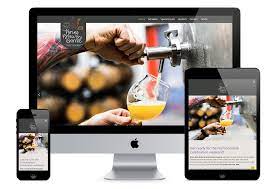Empowering Diverse Populations: Mobile Health Applications and Equitable Nursing Care

Mobile Health Applications: Communication technologies have revolutionised nursing care delivery in the modern healthcare landscape, providing new avenues to engage patients and enhance their health outcomes. Mobile health applications (apps) have emerged as transformative tools to bridge healthcare disparities and ensure equitable care delivery across diverse populations. This essay explores the potential of communication technologies, particularly mobile health apps, to deliver safe nursing care to different people, considering the contrasting healthcare systems in large metropolitan areas and rural settings. A strategy will also be proposed to mitigate digital access inequities and ensure equitable information access for all patients.
Mobile Health Applications and Diverse Populations
Mobile health applications offer a versatile platform to address the healthcare needs of diverse populations. In large metropolitan areas, where healthcare systems are often more advanced, mobile apps provide services that enhance patient-centred care. Patients can conveniently access their health records, schedule appointments, receive medication reminders, and even engage in telehealth consultations with healthcare providers. These apps empower patients to actively participate in their care, improving adherence and better health outcomes.
Conversely, rural areas often face limited healthcare infrastructure and geographical barriers. Mobile health apps are crucial in overcoming these obstacles in such settings. Patients in rural areas can use these apps to access essential health information, receive preventive care tips, and participate in remote consultations with healthcare professionals. Mobile apps enhance healthcare access by reducing the need for physical visits and allowing patients to interact virtually, particularly for underserved populations in remote locations.
Contrasting Health Care Systems: Metropolitan vs. Rural:
The use of mobile health apps to deliver safe nursing care varies between large urban areas and rural settings due to disparities in digital substructure, healthcare resources, and enduring needs.
Mobile health apps: Large Metropolitan Area
Mobile health apps are well-suited to cater to the digital-savvy population in a large metropolitan area. These apps provide seamless access to health information, facilitate appointment scheduling, and enable patients to engage in real-time communication with healthcare providers. Additionally, health systems in urban areas often offer robust telehealth services, allowing patients to receive virtual nursing care without needing in-person visits. This approach enhances patient convenience, reduces waiting times, and optimises healthcare resource allocation.
Mobile Health Applications: Rural Area
Rural areas may need more progressive digital infrastructure present in urban areas. However, mobile health apps can still bridge healthcare gaps by offering tailored services that cater to the specific needs of these populations. These apps can provide essential health teaching, medication reminders, and telehealth consultations to patients facing challenges accessing healthcare facilities due to physical constraints.
Reducing Inequities in Digital Access: The “Digital Health Outreach” Strategy
To address inequities in digital access and ensure that all patients can gain from mobile health apps, the “Digital Health Outreach” strategy can work.
Components of the Digital Health Outreach Strategy:
Community Partnerships: Collaborate with local community organisations, clinics, and non-profit groups to identify areas with limited digital access. Could you set up partnerships to extend the reach of mobile health apps?
Mobile Clinics: Utilize mobile clinics with technology, such as tablets or laptops, to deliver access to mobile suitability apps for patients in underserved rural areas. These clinics can visit aloof groups regularly to offer education and help.
Digital Literacy Programs: Mobile Health Applications literacy training sessions for patients in rural areas, ensuring they can effectively use mobile health apps. These sessions can be conducted in collaboration with community centres or local schools.
Multilingual Support: Grow mobile health apps that cater to diverse linguistic and educational backgrounds, ensuring that language barriers do not hinder access to healthcare material.
Telehealth Expansion: Cooperate with healthcare providers to enlarge telehealth services in rural areas. Mobile health apps can enable virtual nursing care discussions, allowing patients to connect with nurses remotely.
Conclusion to Mobile Health Applications
Mobile health requests have emerged as powerful tools to deliver safe nursing care to diverse populations, addressing the disparities between metropolitan and rural healthcare systems. By tailoring services to local needs and utilising plans like “Digital Health Outreach,” nurses can bridge the gap between digital access inequities and ensure equitable access to data and care. As technology continues to advance, mobile health apps have the potential to transform healthcare delivery, pretty patient engagement, refine health outcomes, and endorse health equity across all groups. Through innovative approaches and strategic partnerships, nurses can champion communication technologies to provide safe, patient-centred care that exceeds geographical boundaries.
References
library.med.utah.edu. (n.d.). EHSL – Medical & Health Sciences Databases. [online] Available at: https://library.med.utah.edu/km/a2z_db.php
Rowland, S.P., Fitzgerald, J.E., Holme, T., Powell, J. and McGregor, A. (2020). What is the clinical value of mHealth for patients? npj Digital Medicine, [online] 3(1). doi https://doi.org/10.1038/s41746-019-0206-x.





